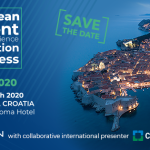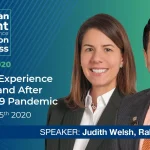January 23, 2020 – Europe’s first-ever patient experience and innovation congress, EPIC 2020, will take place in Dubrovnik in March. TCN catches up with co-organiser, Irving Stackpole, to learn more about this ground-breaking conference.
There are two months to go until the EPIC 2020, the first European Patient Experience and Innovation Congress in Dubrovnik, which boasts a star-studded lineup of medical tourism expert speakers and professionals, including some of the biggest names in the industry, such as Cleveland Clinic and Mayo Clinic. In terms of experience, none can match Irving Stackpole, who is not only in the industry for 48 years, but also at the cutting edge of new technologies.
With decades of experience in healthcare, Irving Stackpole is the President of Stackpole & Associates, Inc., a strategy, marketing and research firm. Irving is a mentor for the European Institute for Innovation in Health, an EU program to stimulate healthcare entrepreneurship. He edited Medical Tourism Marketing the 1st book on the subject, is the co-author of The Marketing Handbook in Health Tourism, co-hosts the podcast and many more similar activities. TCN caught up with Stackpole to learn more about why this conference is so important and innovative.
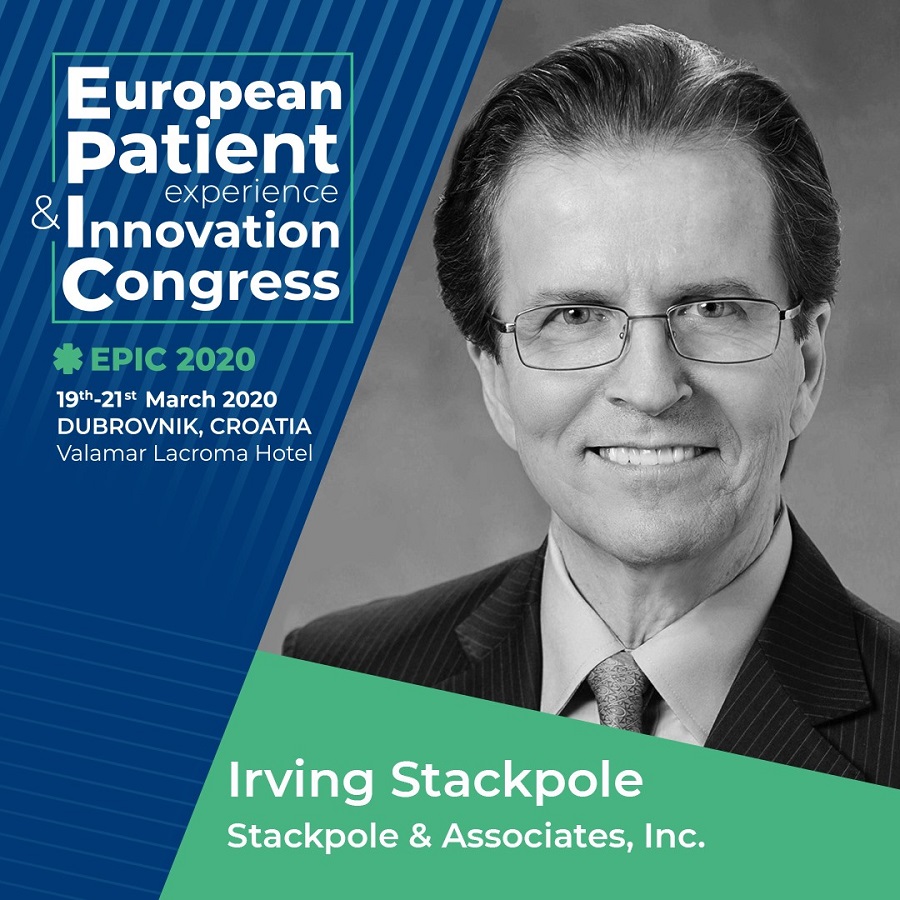
What is the Patient experience, and why is it so important?
The “patient experience” refers to the subjective perception of the interactions consumers have with their healthcare providers. This ranges from the first request or inquiry, to the aftercare follow up, and includes everything from whether the doctors’ office answered the phone well, to the clarity and accuracy of the invoice charges. Was it easy to schedule this appointment? Were the people I spoke to polite? Did I feel rushed or interrogated? Did the doctor take time to listen? Was the clinic or hospital clean and orderly? Was the outcome as I expected based on what the doctor told me? Were there any surprises in the invoice I received? All of these become part of the “patient experience”.
As it turns out, positive patient experiences may be a critical ingredient to healthier national economies!
In developed countries, healthcare is consuming greater amounts of the Gross Domestic Product (GDP), which leaves less resources for other investments like R&D, infrastructure, pensions and others. In developing economies, the struggle for investment priorities creates political tensions. So, making healthcare more effective is not only just the right thing to do, greater healthcare efficiency is a national priority. And one of the factors that has emerged from research in America, UK and Australia is that healthcare consumers who are more engaged in their care, more involved, have better outcomes and report higher levels of satisfaction with their care.
The focus on the consumer, or patient, experience is also a reflection of the changing relationship between consumers (“patients”) and providers. Patients are no longer “patient” with arrogant doctors who expect compliance and passive, complete acceptance. Many consumers arrive at their appointments with having researched symptoms and options, loaded with questions and even suggestions. This completely turns the patient / provider relationship on its ear.
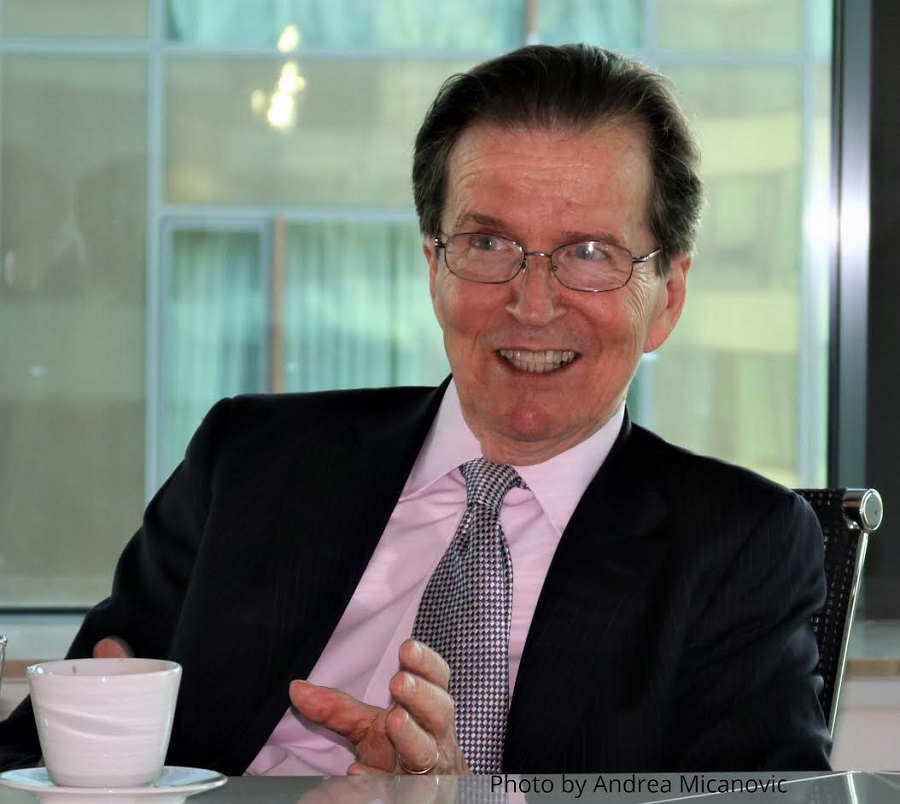
You recently gave a presentation in Berlin entitled ‘The Future of Healthcare is in Your Hand.’ What do you mean by that?
Healthcare consumers are progressively choosing to explore, engage and communicate with providers via their mobile devices. After all, if I can get everything I want or need via my mobile devise, through an app – why not an appointment with my ENT? If I am using my mobile device to order my latte for pickup, my lunch for delivery and a date for the weekend, why can’t I also schedule my annual physical? And regardless of how we may understand that the healthcare “experience” shouldn’t be compared to buying shoes on Zappo’s or ordering a book on Amazon, the comparison is inevitable if only because all of these occur through the same device.
And if I can reach out to, and communicate with my provider via the mobile device, why should the relationship by one-way? Why can’t providers reach the consumer via digital channels as well? And indeed, this is the pattern we see developing. Teleradiology was the entre to this realm, and telemetry is now being used wherever there is a dearth of particular providers (think psychiatry), great distance (think remote locations) or unusual specialties (think genomic profiling).
And then there is progress toward wearable devices that collect biometrics through your handheld platforms wherever you are. The data from your wearable heartrate monitor, blood glucose monitor, sweat chemistry and breath analyzer is being collected and stored in a data warehouse which can be accessed by providers and researchers anywhere and at any time. So, you may not travel, your provider may not travel, but exabytes of data are traveling whirling around the globe at startling sped and growing rates. Is this “health data tourism”?
This is what I mean by, “The Future of Healthcare Is in Your Hand.”
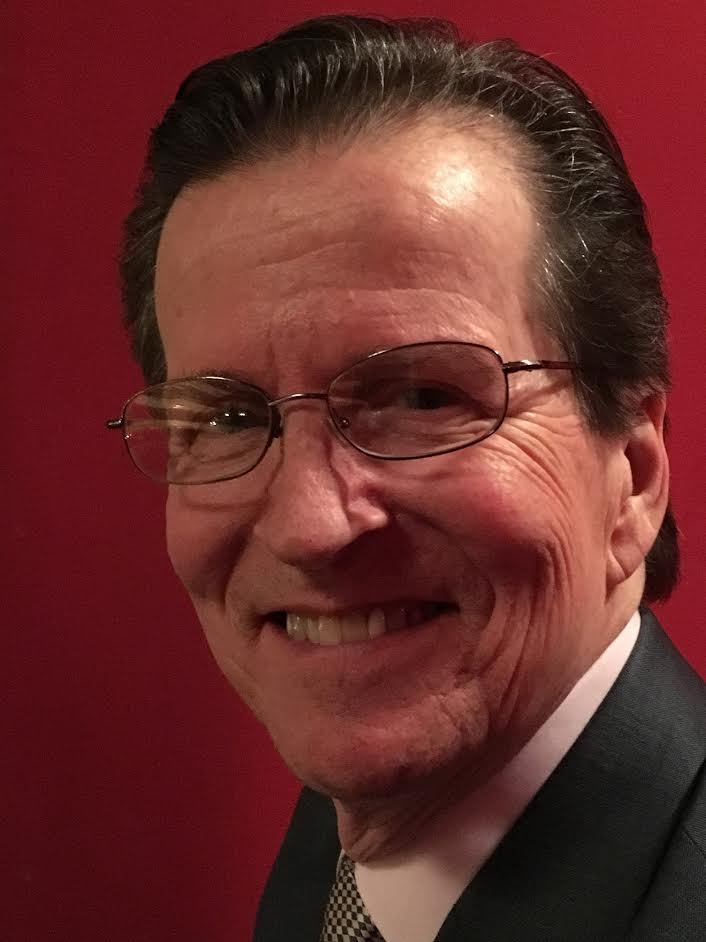
How is the patient-doctor relationship changing?
The historical relationship has been “asymmetrical” where the provider knew everything, the patient just had to be “patient” and accept what the doctor said, how he chose to say it and when. The notion that the patient had a right to know anything emerged as a very new thread in the historical tapestry of healthcare. A patient’s medical record is still considered the provider’s property, although the information belongs to the patient.
The relationship between the doctor and the patient is affected by the age of each, their expectations and the context of their interaction. In emergency or urgent care circumstances, the relationship is almost completely transactional, whereas in a more casual circumstance the relationships are becoming more interactive and less transactional.
The past decade saw medical schools teaching “empathy” and bedside manner. If this weren’t a glaring lack, why would the medical colleges add this to the curriculum? The UK and USA have formal rating systems based on patient feedback which rate doctors on their interpersonal qualities.
And wherever patient choice influences the physician’s earnings, you’ll find a far greater sensitivity to the patient’s experience and their willingness to recommend. Pathologists don’t suffer this customer-facing challenge, whereas obstetricians do, and impacts are remarkable. In the four decades in which I have been working in healthcare, I have witnessed a sea-change in attitudes by and among physicians in elective practices.
The Four Muskateers organising EPIC 2020 are an interesting collection. Apart from yourself, a Brit in Slovakia, a private clinic in Zagreb, and the number one hospital in the world, Cleveland Clinic. How did the partnership come about?
Ognjen Bagatin and I met at a conference in Washington DC several years ago, and I was immediately struck by his energy and willingness to engage at a far deeper level than most clinic owner / operators. Ognjen wanted to delve more deeply into the inner working of the markets, the motivations and obstacles, as well as the levers that make things work. He and I kept in touch last year, we had a conversation that revealed to us the central need for innovation in the behavioral and technological dimensions that produce the patient experience. We agreed to stay in dialogue and each of us conducted research into the organizations and conferences exploring these topics. We were surprised at how little there was in this domain and felt an immediate need and opportunity to fill the gap. Being passionately Croatian, Ognjen wanted to host an event in Croatia, Ognjen recruited Daniel Coulton-Shaw of Global Clinical Rating to participate in the organization of the Congress.
We agreed to focus on Europe, since these countries[İrving Stackpole] share the fundamental value that healthcare is the responsibility of the state. European economies and political cultures incorporate this assumption, in contrast to the USA, where millions do not have access to health insurance, and over half of personal bankruptcies are because of medical bills. We did agree, however, to invite leading experts from America to get involved. Ognjen immediately asked Tomislav Mihaljević, CEO of Cleveland Clinic if he were interested, and Tomas’ enthusiastic support was remarkable. We knew right away that we were onto a good idea!
Dubrovnik is the location – why did you choose it, and can you say a few words about Croatian health tourism and its progress?
Croatia is the scene of vibrant entrepreneurial energy! When Bagatin Clinic stepped up to organize this event, the country was a foregone conclusion, then Ognjen suggested Dubrovnik. Given the international reputation as a destination and its fame as the setting as Kings Landing in Game of Thrones, the scene as set!
Croatia is seeing a surge as a destination for health tourists. The reasons are parallel or overlapping with the reasons Croatia is a growing destination for travelers. Wonderful people, beautiful scenery, great food – all of these are compelling. Add to that, the excellent medical and healthcare providers and it’s easy to see why Croatia is growing as a health tourism destination.
Who should come to EPIC – what will they get out of it?
The audience for EPIC includes healthcare providers, (hospitals, clinics, dentists, therapists), companies serving the health & wellness markets such as technology providers and suppliers, as well as researchers and academics exploring leading-edge breakthroughs in healthcare technology and life sciences.
The content is highly varied and will appeal to a broad array of practitioners and innovators.
This Congress is targeting forward-thinkers, and those who are anticipating what the future holds. The person who thinks, “What if…” is exactly the audience who will benefit.
Those who attend will derive insights into technological and behavioral innovations that will directly impact the “patient experience” in healthcare. These insights may even surprise; this conference is an opportunity to “look around the corner” and see what’s coming.
And there will be many opportunities to network with thought leaders and successful healthcare business professionals from over 15 countries.
You have put together a stunning lineup of speakers- give us a flavour.
The speakers we invited, and those who asked to participate all shared our vision of the importance for the patient experience and innovation evolution. We were in dialogue with many of worldwide experts, researchers and authors, and while not everyone could fit this year’s program into their schedules, we are delighted with the variety and quality of the program presenters. And because of the importance of the topic, and the leadership position EPIC has developed in this domain, we are very confident going forward that we will continue to have top caliber faculty at this event.
Joe Sweet, and Mario Skugor from Cleveland Clinic in the United States and James Guttierez from Cleveland Clinic London will be sharing their practical experience engineering an environment and culture that supports a positive patient experience. Also, we’ll hear from Sheila Stevens and Rahul Kashyap from Mayo Clinic about their breakthroughs in managing the patient experience. Karen Jay, CEO of Planetree and Chris Graham, European managing director for The Picker Institute will talk about the challenges and advances in measuring patient satisfaction and engagement. In the technology domain, João Bocas, the “wearables guys” will review the recent breakthroughs in remote biometric sensing and data collection. We will hear from nursing and care professionals from Europe and the United States regarding the bedside innovations. Noted international travel writer and consultant, Doug Lansky, will talk about the experience of international patients who are seeking care far from home. On a personal experience level, we have invited “e-patient Dave”, Dave de Bronkhart, as well as a panel of former patients to discuss their experiences, and to answer questions from the audience.
The range of speakers is as broad as the subject, the “patient experience”. When you asked me to give you, “a flavor” of speakers at EPIC, it will be more like a smorgasbord than an entrée!
Importantly, we all believe that this is just the beginning. The future of healthcare will be driven by changes that are only just now beginning to emerge. This Congress, the 1st European Patient Experience & Innovation Congress is our attempt to “look around the corner” and to create an ongoing dialogue that will benefit providers and consumers.
You can learn more about EPIC 2020 from the official website.
To follow the latest in the Croatian medical tourism story, follow the dedicated TCN section.

